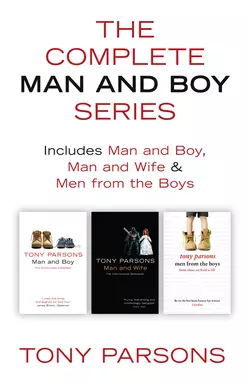The Complete Man and Boy Trilogy: Man and Boy, Man and Wife, Men From the Boys

Tony Parsons
Тип: электронная книга
Жанр: Современная зарубежная литература
Язык: на английском языке
Стоимость: 1163.51 ₽
Статус: В продаже
Издательство: HarperCollins
Дата публикации: 16.04.2024
Отзывы: Пока нет Добавить отзыв
О книге: The perfect read for Father’s Day, Tony Parsons’ bestselling series, MAN AND BOY, MAN AND WIFE and MEN FROM THE BOYS.In MAN AND BOY, Harry Silver has it all. A successful job in TV, a gorgeous wife, a lovely child. And in one moment of madness, he chucks it all away. This book tells the story of Harry learning what words like love and family really mean.In MAN AND WIFE, Harry Silver is learning to juggle his many commitments – to his wife and his ex-wife, to his son, his step-daughter and his mother, to his own work and his wife’s career. And then someone walks into his life who is going to make it even more complicated…In MEN FROM THE BOYS, Harry Silver is settled and happy. But can it last? He is soon about to turn forty and his ex-wife is back in town. Soon it could be time to kiss the good life goodbye…